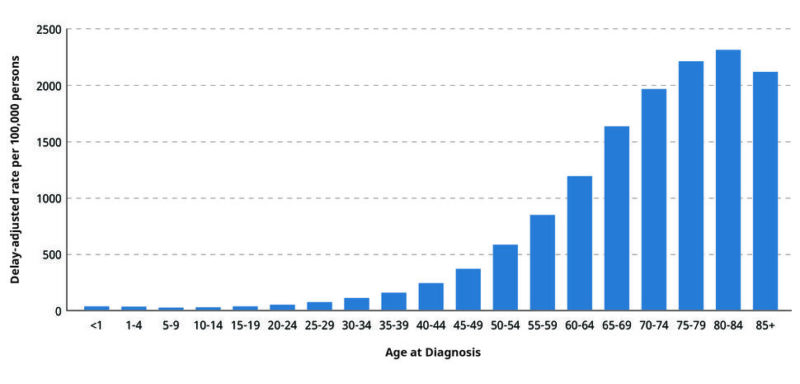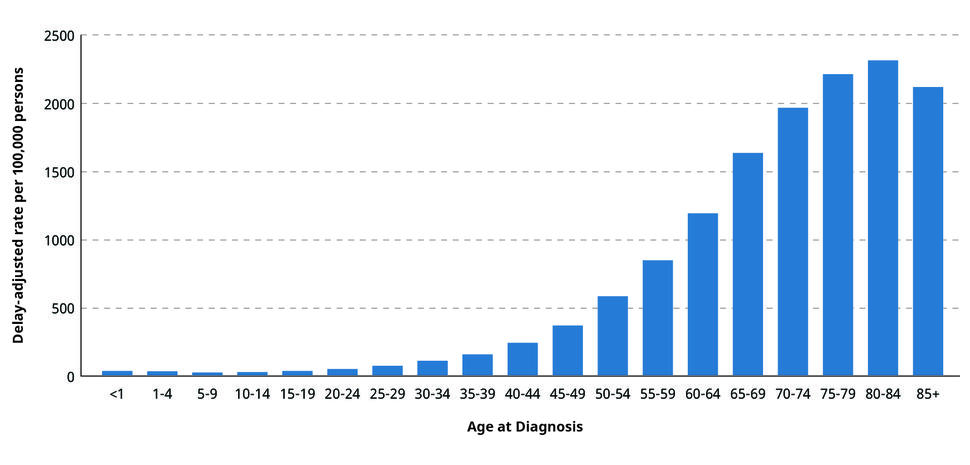Cancer Rates Among Young Adults: A Complex Picture
The Rise: Cancer diagnoses in young adults (defined as individuals under 50) are increasing, a trend raising concern and posing a significant public health challenge.
Data:
- Between 2000 and 2019, the rate in the US jumped nearly 13%, from 95.6 to 107.8 cases per 100,000 people.
- In the UK, incidence rates rose by 24% for females and 14% for males between 1990s and 2019.
- Similar trends are observed in other developed countries.
Impact:
- While overall cancer survival rates have improved, young adults still face significant challenges, including late diagnoses and poorer prognoses for certain cancers.
- The rise in cancer can disrupt careers, relationships, and mental well-being of young adults and their families.
Types of Cancer:
- Gastrointestinal cancers, particularly colorectal cancer, are one of the fastest-growing categories in young adults.
- Other concerning increases include thyroid, testicular, and melanoma skin cancers.
- Leukemia and lymphoma remain prevalent cancers diagnosed in this age group.
Possible Causes:
- Risk factors: Obesity, physical inactivity, unhealthy diet, smoking, excessive alcohol consumption, and environmental exposures are potential contributors.
- Improved detection: Increased cancer screening and advancements in diagnostic tools might be partially responsible for the apparent rise.
- Shifting age distribution: Some cancers previously diagnosed in older individuals are now seen in younger adults due to better survival rates for other age groups.
Areas of Research:
- Understanding the specific role of different risk factors in young adults.
- Identifying early detection strategies and biomarkers for cancers with limited screening methods.
- Developing tailored treatment approaches and supportive care programs for young adults.

Resources:
- American Cancer Society: https://www.cancer.org/cancer.html
- National Cancer Institute: https://www.cancer.gov/
- Cancer Research UK: https://www.cancerresearchuk.org/home
Additional Points:
- Despite the rise, it’s important to remember that the absolute risk of cancer in young adults remains relatively low.
- Maintaining a healthy lifestyle and participating in recommended cancer screenings are crucial for prevention and early detection.
- Advancements in research and treatment offer hope for improved outcomes for young adults diagnosed with cancer.
I hope this information provides a comprehensive overview of the rising cancer rates among young adults. Remember, this is a complex issue with ongoing research, and staying informed about the latest developments and seeking professional medical advice is vital.

